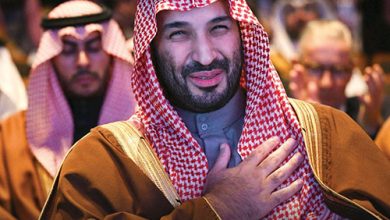ANTICORRUPTION LEADERSHIP
REVOLUTION OF CONSCIENCE
Rajika Jayatilake endorses the new Mexican president’s belief in people’s innate honesty
A stinging yet pertinent observation by the new President of Mexico Andrés Manuel López Obrador is that rulers always set a bad example and regular people who are innately good get corrupted by dishonest rulers. And people must only be exposed to leaders with high moral standards.
Obrador, who won the presidential election in July, is a 64-year-old former mayor of Mexico City and the first leftist to govern the nation in decades. He intends to bring clean leadership with his distinctly modest lifestyle – one that detests flamboyance and extravagance.
Mexico’s recent leaders have allegedly been corrupt technocrats and pro-American politicians. Obrador’s role models are the independence and revolutionary leaders of Mexico who defied foreign powers. It appears that there’s a revolution in the offing in Mexico.
When he takes office in December, Obrador hopes to make good his campaign promise to Mexico’s 100 million people and eradicate corruption in the country.
Polling by Latinobarómetro showed that last year, only 18 percent of Mexicans were satisfied with democracy. Obrador won the election on an anticorruption platform and he believes that ‘a revolution of consciences’ enabled him – a candidate from a non-establishment party – to be elected president.
With digital technology empowering Mexican youth and social media platforms becoming fertile grounds for youth activism, a movement against corrupt rule was born. In his victory speech, Obrador denounced the ruling elite by calling them “the mafia of power.”
One of his first responsibilities as president will be to convert the sprawling presidential palace premises into a public park and give up the many perks of office. His first request to congress as the new president will be to amend the constitution to enable a sitting president to be tried for corruption.
He has also promised not to favour relatives and friends, and said that all those who engage in corrupt activities will be punished according to their crimes. Obrado believes in the popular saying that ‘a good judge begins at home.’
As such, he hasn’t proposed any plans to introduce anticorruption measures to establishments plagued by corrupt practices. Obrador has enormous confidence and belief in the power of honesty of the country’s first citizen, and believes that he can rid the system of corruption “because the president won’t be corrupt.”
Together with selecting good appointees to key positions, this can reduce crime by half and achieve the “complete eradication of political corruption,” he maintains. And he cautions the people: “Don’t be corrupt – and if you see it, report it.” This translates into not needing to raise taxes because with low corruption levels, the cost of government will inevitably reduce and honest institutions will in turn spur efficiency.
The Mexican Institute for Competitiveness estimates that corruption erodes GNP by between two and 10 percent, and reduces foreign investment by five percent annually. Mexico is considered one of the most corrupt countries in the world with Transparency International ranking it 135th in a list of 180 nations.
What’s more, the judiciary and police, as well as institutions issuing business registration and construction permits and licences, are darkened by the evils of bribery and corruption. Most Mexicans believe the country’s courts are corrupt due to political interference at state and local levels.
Over 65 percent of Mexico’s corporate sector claims that corruption is ingrained in its business culture while foreign investors are discouraged by the billowing costs and frustratingly long waiting time to set up a business. Corruption in government bureaucracy hampers efficiency and the Mexican people are disillusioned.
As Obrador envisions his new office and the challenge of eradicating corruption, he appears to be focussing on causes rather than symptoms. For instance, his incoming administration is planning to encourage economic development in Central America that will help overcome ingrained structural issues like poverty and violence, which force people to flee the region into Mexico.
Illegal migration from Central and South America is creating major economic problems in Mexico too. Once in office, Obrador is planning on keeping illegal immigration under control with a new security force dedicated to the task along the lines of US border patrol. Currently, legal as well as illegal migration is handled by Mexico’s National Institute of Migration.
Obrador’s tenure promises to be an austere one for politicians and public sector officials as a result of slashed perks. And teachers, nurses, doctors and the armed forces will see a calibrated pay rise to keep inflation in check. He has also promised higher subsidies for the elderly and disabled.
With all these challenges, Obrador vehemently denies the perception that corruption is ingrained in Mexican culture. He says: “In our people, there is a great reserve of values, cultural, moral, and spiritual – in the families, in the pueblos and in the communities.”
His focus is simple. “I want to go down in history as a good president of Mexico.”








A great article. Lot of lessons for Sri Lanka!